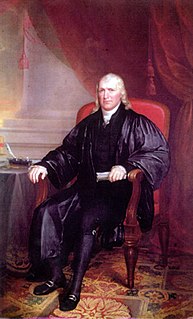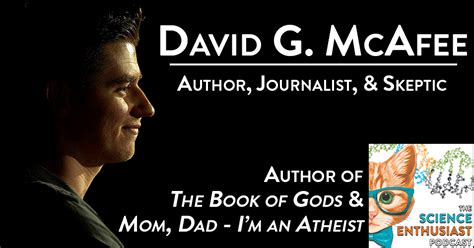A Quote by Eric Foner
I think here is the irony of American history. We don't have an established church. When you have an established church nobody takes religion as seriously as we do here. We have a free market in religion. The religious groups are competing with each other.
Related Quotes
Religious institutions that use government power in support of themselves and force their views on persons of other faiths, or of no faith, undermine all our civil rights. Moreover, state support of an established religion tends to make the clergy unresponsive to their own people, and leads to corruption within religion itself. Erecting the 'wall of separation between church and state,' therefore, is absolutely essential in a free society.
As you know, the separation of church and state is not subject to discussion or alteration. Under our Constitution no church or religion can be supported by the U.S. Government. We maintain freedom of religion so that an American can either worship in the church of his choice or choose to go to no church at all.
Religion and liberty are inseparable. Religion is voluntary, and cannot, and ought not to be forced. This is a fundamental article of the American creed, without distinction of sect or party. Liberty, both civil and religious, is an American instinct. Such liberty is impossible on the basis of a union of church and state, where the one of necessity restricts or controls the other. It requires a friendly separation, where each power is entirely independent in its own sphere.
Let us labor for the security of free thought, free speech, pure morals, unfettered religious sentiments, and equal rights and privileges for all men, irrespective of nationality, color, or religion;.... leave the matter of religious teaching to the family altar, the church, and the private school, supported entirely by private contribution. Keep church and state forever separate.
I'd signed up not just for Christianity but the established Church of England. That has a particular history and I think we rather lost it in the 19th Century, we became so much part of empire and colonialism, the language of the Church Of England still reflects that Victorian time. As the 20th Century developed, not surprisingly people left the church and I can see the church's role in losing people.
The separation of church and state is necessary partly because if religion is good then the state shouldn't interfere with the religious vision or with the religious prophet. There must be a realm of truth beyond political competence, that's why there must be a separation of churches, but if religion is bad and a bad religion is one that gives an ultimate sanctity to some particular cause. Then religion mustn't interfere with the state - so one of the basic Democratic principles as we know it in America is the separation of church and state.
I believe in a wall between church and state so high that no one can climb over it. When religion controls government, political liberty dies; and when government controls religion, religious liberty perishes. Every American has the constitutional right not to be taxed or have his tax money expended for the establishment of religion. For too long the issue of government aid to church related organizations has been a divisive force in our society and in the Congress. It has erected communication barriers among our religions and fostered intolerance.
Without cultural indoctrination, all of us would be atheists. Or, more specifically, while many may dream up their own gods as did our ancestors, they would certainly not be ‘Christian’ or ‘Jewish’ or ‘Muslim’ or any other established religion. That’s because, without the texts and churches and familial instruction, there are no independent evidences that any specific religion is true. Outside of the Bible, how would one hear of Jesus? The same goes for every established religion.
What is dangerous about the far right is not that it takes religion seriously - most of us do - but rather that it condemns all other spiritual choices - the Buddhist, the Jew, the Muslim, and many others who consider themselves to be good Christians. The wall of separation between church and state is needed precisely because religion, like art, is too important a part of the human experience to be choked by the hands of censors.
The First Amendment...does not say that in every respect there shall be a separation of Church and State....Otherwise the state and religion would be aliens to each other - hostile, suspicious, and even unfriendly....The state may not establish a 'religion of secularism' in the sense of affirmatively opposing or showing hostility to religion, thus preferring those who believe in no religion over those who do believe.
Today courts wrongly interpret separation of church and state to mean that religion has no place in the public arena, or that morality derived from religion should not be permitted to shape our laws. Somehow freedom for religious expression has become freedom from religious expression. Secularists want to empty the public square of religion and religious-based morality so they can monopolize the shared space of society with their own views. In the process they have made religious believers into second-class citizens.
The decision for complete religious freedom and for separation of church and state in the eyes of the rest of the world was perhaps the most important decision reached in the New World. Everywhere in the western world of the 18th century, church and state were one; and everywhere the state maintained an established church and tried to force conformity to its dogma.







































